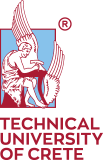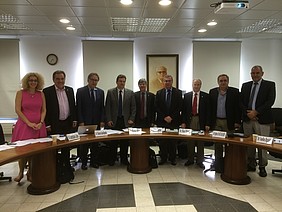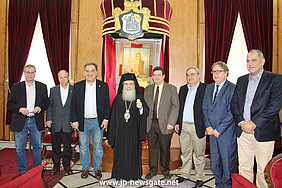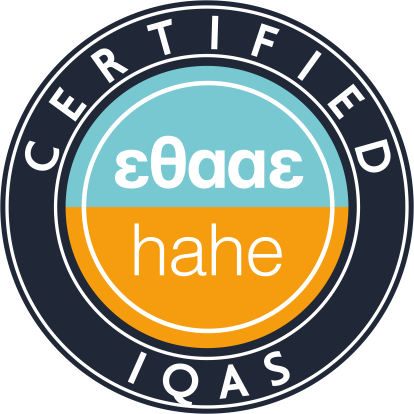Prof. Vassilios V. Digalakis, Rector of the Technical University of Crete, participated at the official visit of Greek Rectors and Presidents of Research Centers to Israel during the week of November 2-7, 2015, hosted by the Israeli Embassy in Greece and the Israeli Ministry of Foreign Affairs. The following academic institutions (Universities and Research Centers) participated:
1. Aristotle University of Thessaloniki
Dr. Pericles A. Mitkas, Rector, Professor of Electrical and Computer Engineering
2. Athens University of Economics and Business
Dr. Constantine Gatsios, Rector, Professor of Economics
3. National and Kapodistrian University of Athens
Dr. Nikolaos Milonas, Vice-Rector of Finance, Professor of Finance
4. Technical University of Crete, Chania
Dr. Vasileios Digalakis, Rector, Professor of Electronic and Computer Engineering
5. University of Macedonia, Thessaloniki
Dr. Achilles Zapranis, Rector, Professor of Business Administration
6. National Center for Scientific Research "Demokritos"
Dr. Nikolaos Kanellopoulos, Chair of the Board of Directors
7. Foundation of Research and Technology – Hellas (FORTH)
Dr. Spiros H. Anastasiadis, Director of the Institute of Electronic Structure and Laser, Professor of Chemistry of the University of Crete representing the Board of Directors of FORTH and the Rector of the University of Crete
The delegation visited and met with representatives of the following Israeli institutions and private companies:
1. Council of Higher Education
2. Hebrew University of Jerusalem
3. Technion
4. Tel-Aviv University
5. IDC Herzliya
6. Office of the Chief Scientist
7. Ben Gurion University of the Negev
8. Mobileye
Moreover, the delegation met with senior officials of the Israeli Ministry of Foreign Affairs, with the Ambassador and officials of the Embassy of Greece, the Consul of Greece in Jerusalem and with His Beatitude the Patriarch of Jerusalem.
The meetings with upper administration and selected researchers provided a good overview of the higher education system in Israel and its close collaboration with industry. Particular emphasis was given to research funding, entrepreneurship, innovation, and the creation of start-ups.
The following actions were proposed to help improve the interaction between the two sides:
a. A new 3-year bilateral research program for supporting joint projects.
b. Thematic joint workshops in areas of mutual interest (e.g., nanotechnology, natural gas and other energy technologies, agriculture, medical research, computer science, informatics and telecommunications, environmental sciences and sustainable development, etc).
c. More visits at the faculty or laboratory level in order to increase the number of joint proposals to European programs.
d. Graduate student exchanges between similar laboratories in order to transfer the start-up mentality to Greece.
e. Visits of technology transfer officials in order to share expertise in technology transfer and foster economic collaboration via joint start-up creation.
f. Israeli institutions have significant experience and expertise in technology transfer through licensing and spin-off creation. Each institution follows a systematic process that appears to be very effective. We would like to see this expertise to be transferred to and adopted by our Universities and Research Centers.
g. Academic institutions in Greece produce significant research results that are not transformed into products or services. Israeli technology transfer companies (TTC’s) and VCs can visit Greece and tap this technology for mutual benefit. Success in step E above can facilitate this process.

















